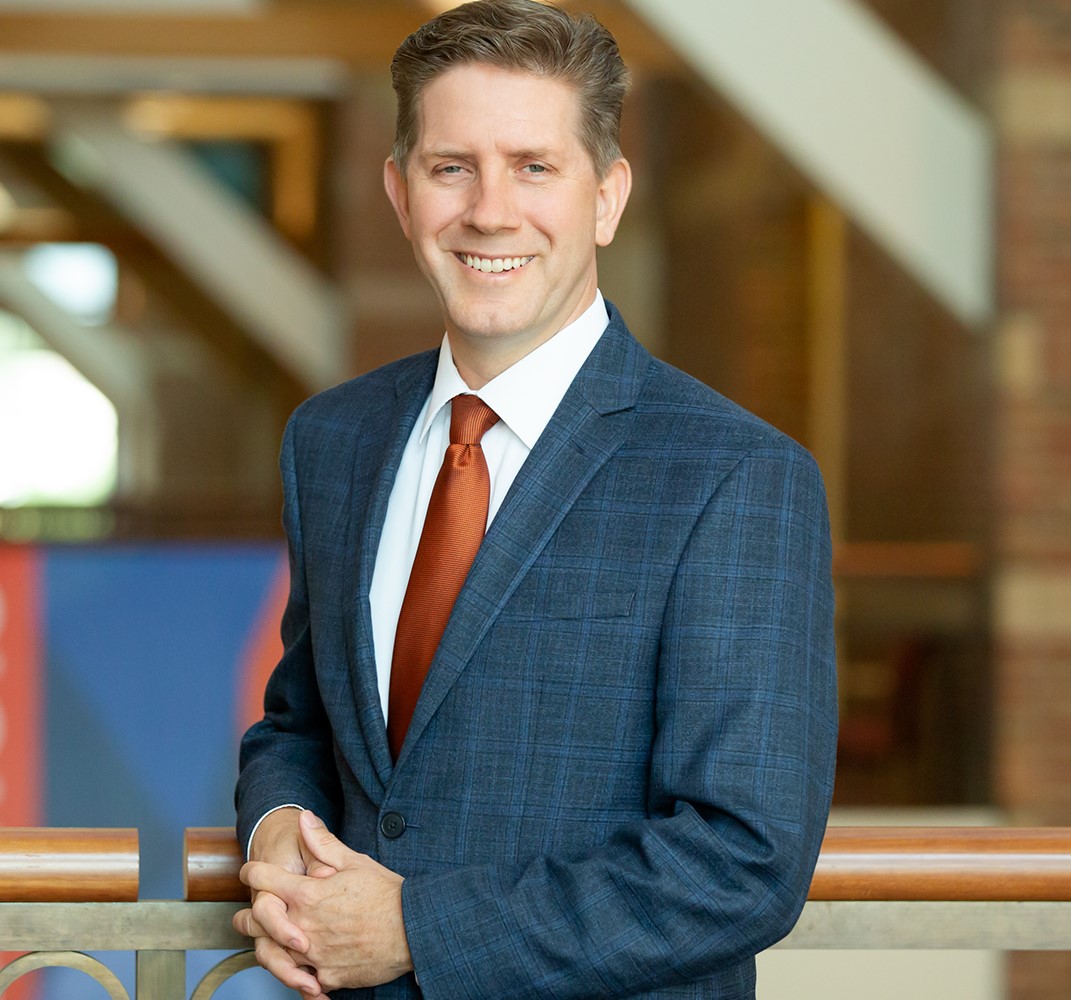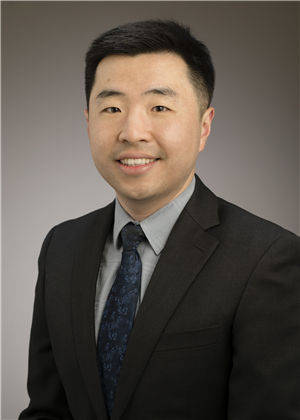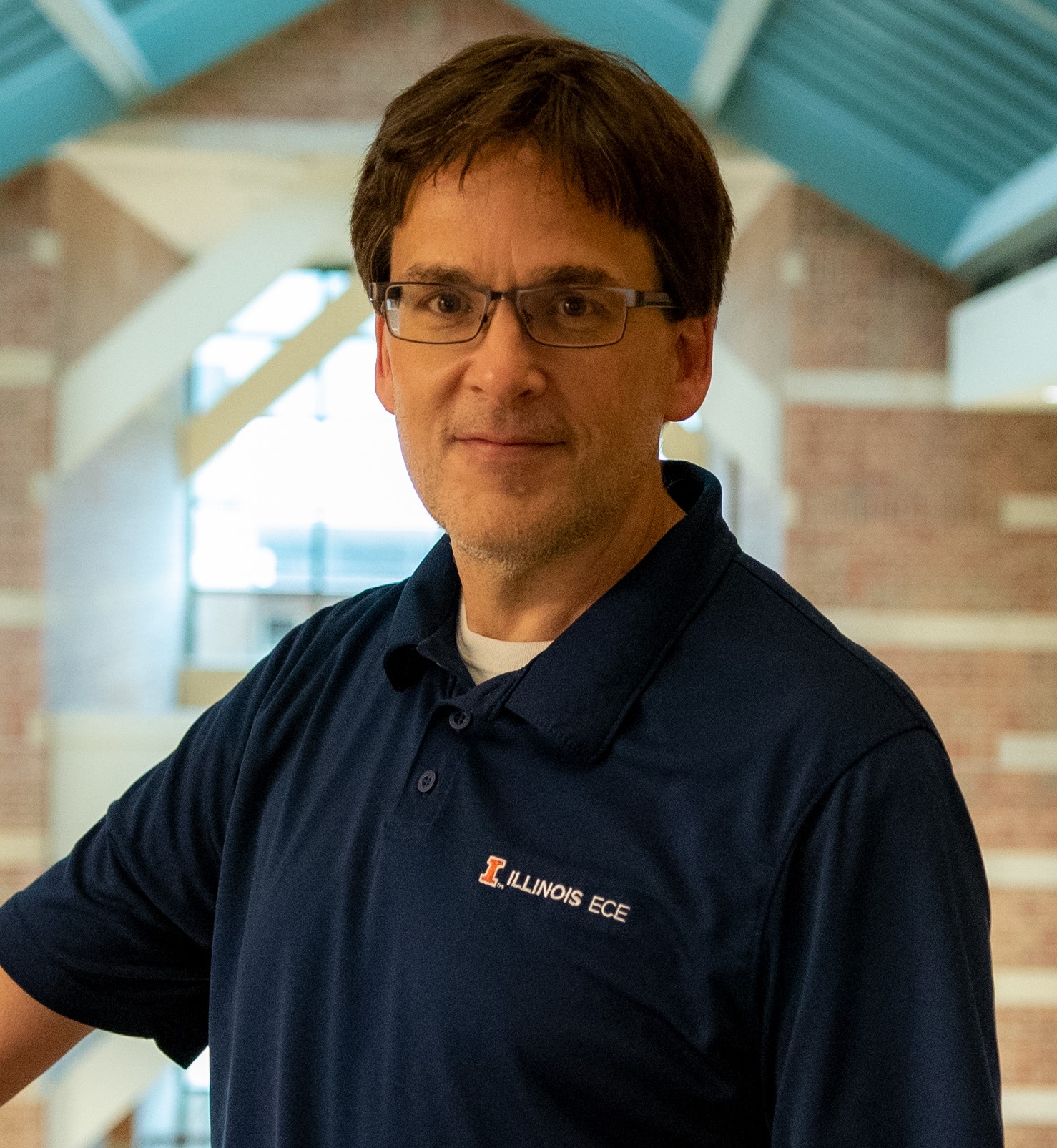The Cancer Center at Illinois is a basic science research institution, where members contribute to cancer research by studying biological pathways and genetics, discover and test new drugs, improve medical imaging techniques, develop and evaluate cancer models, and more.
While the CCIL does not conduct clinical trials with human patients, our members collaborate with physicians to perform groundbreaking research. CCIL members like Stephen Boppart, Pengfei Song, and Michael Oelze are currently collaborating with Carle Health physicians to improve the lives of cancer patients.

STEPHEN BOPPART, CCIL RESEARCH PROGRAM LEADER
The Abel Bliss Professor of Engineering and recently named Grainger Distinguished Chair of Engineering is a pioneer in CCIL collaborations with Carle Foundation Hospital. In 2000, Boppart balanced his medical residency training there while starting his own lab, the Biophotonics Imaging Laboratory, and working as an assistant professor. In 2008, Boppart was the founding director of the Mills Breast Cancer Institute and helped to design the research space that the CCIL now occupies at Carle.
From this space, Boppart and colleagues are now providing intraoperative surgical guidance through optical coherence tomography (OCT) and nonlinear optical imaging. These techniques provide the surgeon with high-resolution images that help assess tumor margins and the tumor microenvironment in real time, reducing the number of patients who are recalled due to positive margins found by the histopathology read after the surgery.
This research is funded by the NIH. Find out more about Boppart’s research.
PENGFEI SONG, CCIL MEMBER
Pengfei Song, Professor of Electrical and Computer Engineering, was introduced to Dr. Kendrith Rowland, Carle oncologist, through staff from the Beckman Institute of Advanced Science and Technology. The researcher and physician were both interested in utilizing ultrasound, a widely available clinical technology, to image colorectal cancer metastasis to the liver. Super resolution ultrasound imaging will be conducted on newly diagnosed patients to differentiate non-responders to antiangiogenic therapies as early as possible to prevent unnecessary toxicity from these drugs.
“As a community hospital, Carle’s staff really cares about its patients. There’s a real sense of community and personal connection,” said Song.
The Cancer Center at Illinois and the Beckman Institute recently co-purchased equipment to conduct the clinical studies, and the Cancer Center at Illinois is providing the space for the system.


MICHAEL OELZE, CCIL MEMBER
Michael Oelze, Professor of Electrical and Computer Engineering, has been working with QT Ultrasound to implement their techniques to obtain more robust imaging biomarkers for quantitative ultrasound. Oelze has partnered with Maria Grosse-Perdekamp, Carle oncologist, and James Wade, Cancer Care Center of Decatur oncologist, to look at breast cancer patients receiving neo-adjuvant therapy and identify non-responders.
Normally, identifying patients’ responsiveness to therapy can take months; however, Oelze and his clinical collaborators will use biomarkers to detect apoptosis, or cell death, within a week of therapy initiation and offer a high accuracy for predicting patient outcome.
The study is proposed to begin in April 2021 and the Cancer Center at Illinois will be providing the space for this research.
Written by: CCIL Communications Team
